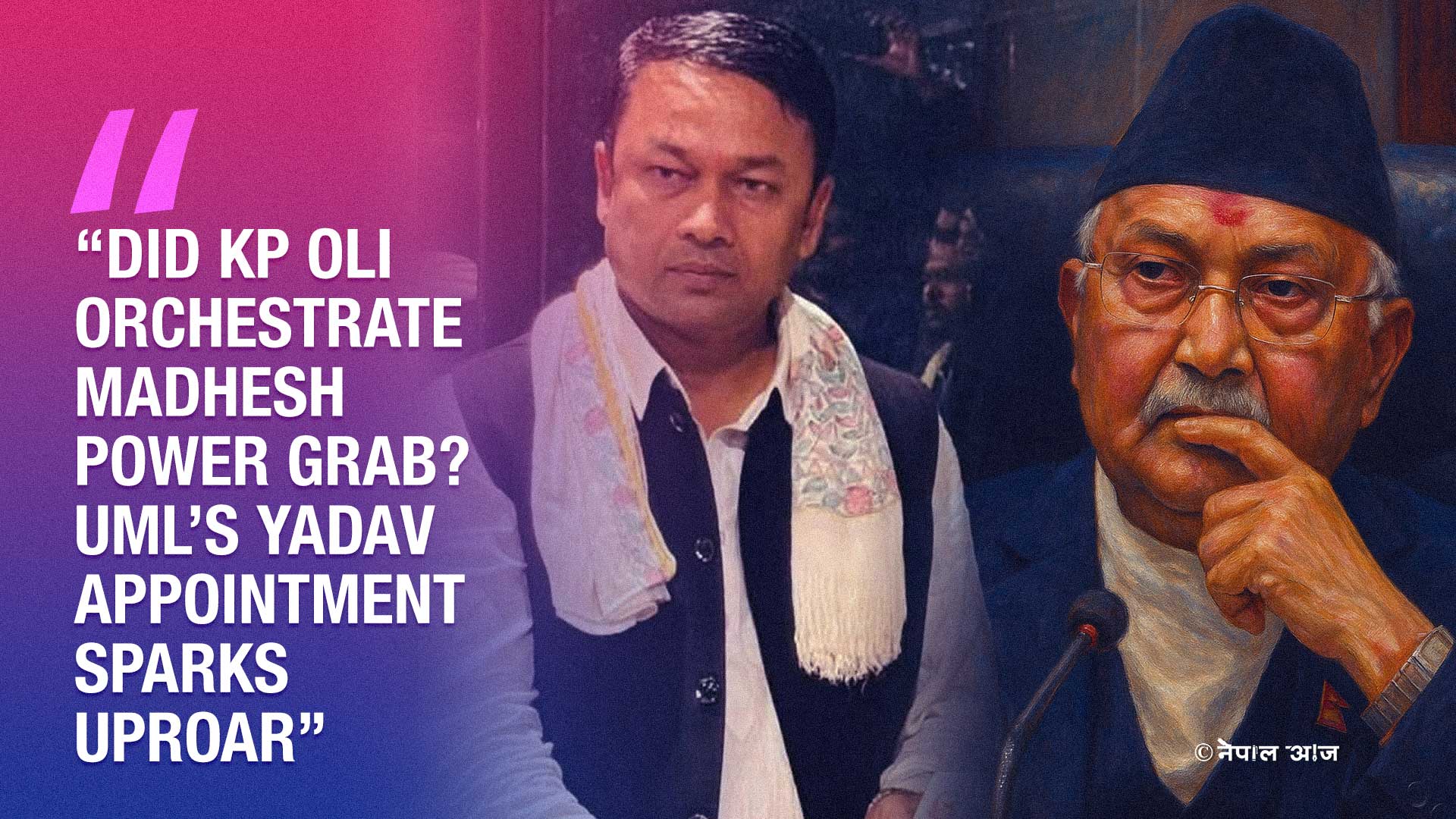Constitutional Crisis or Political Play? Madhesh Province CM Appointment Sparks Fury

JANAKPURDHAM, Madhesh Province – The appointment of CPN-UML's Saroj Kumar Yadav as the new Chief Minister of Madhesh Province has ignited a major constitutional firestorm, with critics accusing the Province Head of acting under central political direction to usher in an era of minority rule, bypassing crucial judicial precedent.
The controversy centres on the Province Head, Sumitra Subedi Bhandari, appointed by a UML-backed government, and her rapid decision to hand power to the UML immediately following the collapse of the previous administration.
The Constitutional Fast-Track
The crisis was triggered when the previous Chief Minister, Jitendra Sonal, failed to secure a vote of confidence and resigned. This opened the door for government formation under Article 168 of the Constitution, which has a sequence of steps:
- * Article 168(2) prioritizes a coalition government formed with the support of two or more parties.
- * Article 168(3) acts as a fallback, mandating the appointment of the leader of the largest single party if the 168(2) government fails.
The opposition’s fury stems from the Governor’s decision to skip the opportunity to repeat the 168(2) process.
"The Governor acted as a mere rubber stamp for Baluwatar, not as a guardian of the Constitution," claimed a senior Nepali Congress leader. "She deliberately ignored the Supreme Court's clear rulings from Koshi and Gandaki, which emphasize that the Province Head must allow fresh claims under 168(2) before resorting to the minority rule of 168(3)."
The Supreme Court precedent holds that stability through a majority coalition should be prioritized. By immediately moving to 168(3), the Governor ensured that the CPN-UML, as the largest party, secured the Chief Ministerial post.
Shadow of the Centre: The Oli Factor
The rapid appointment is being viewed by many as a carefully orchestrated maneuver by the UML central leadership, particularly former Prime Minister KP Sharma Oli.
The political strategy was clear: the UML and Nepali Congress lawmakers had actively worked to ensure the collapse of the previous 168(2) government. Once that government fell, the Governor, perceived as being aligned with the UML, moved swiftly to invoke 168(3), guaranteeing the UML's ascent.
"This is not a constitutional process; this is a political power grab," stated a constitutional expert speaking on condition of anonymity. "The UML has used the Governor to exploit a technicality, ensuring that a CPN-UML Chief Minister is appointed despite not having a stable majority, thereby undermining the stability of the Provincial Assembly."
The appointment of Saroj Kumar Yadav has therefore resulted in a legally-challenged government, poised to immediately face its own trust vote—a cycle of instability critics say was intentionally created by political heavyweights operating from outside Janakpurdham. The decision now leaves the door open for an impending legal challenge, threatening to overturn the new government and plunge Madhesh Province back into judicial uncertainty.




![From Kathmandu to the World: How Excel Students Are Winning Big [Admission Open]](https://nepalaaja.com/img/70194/medium/excel-college-info-eng-nep-2342.jpg)
